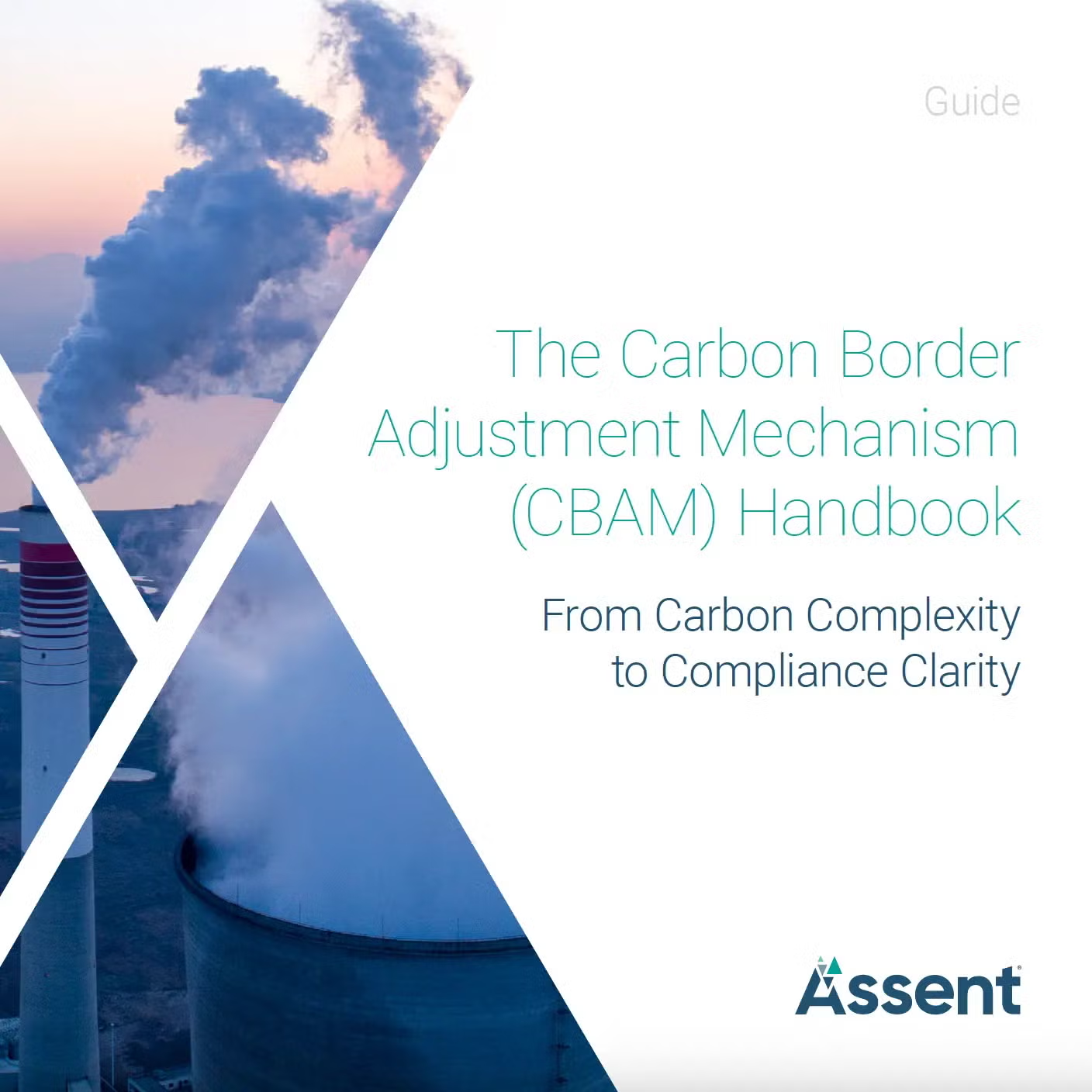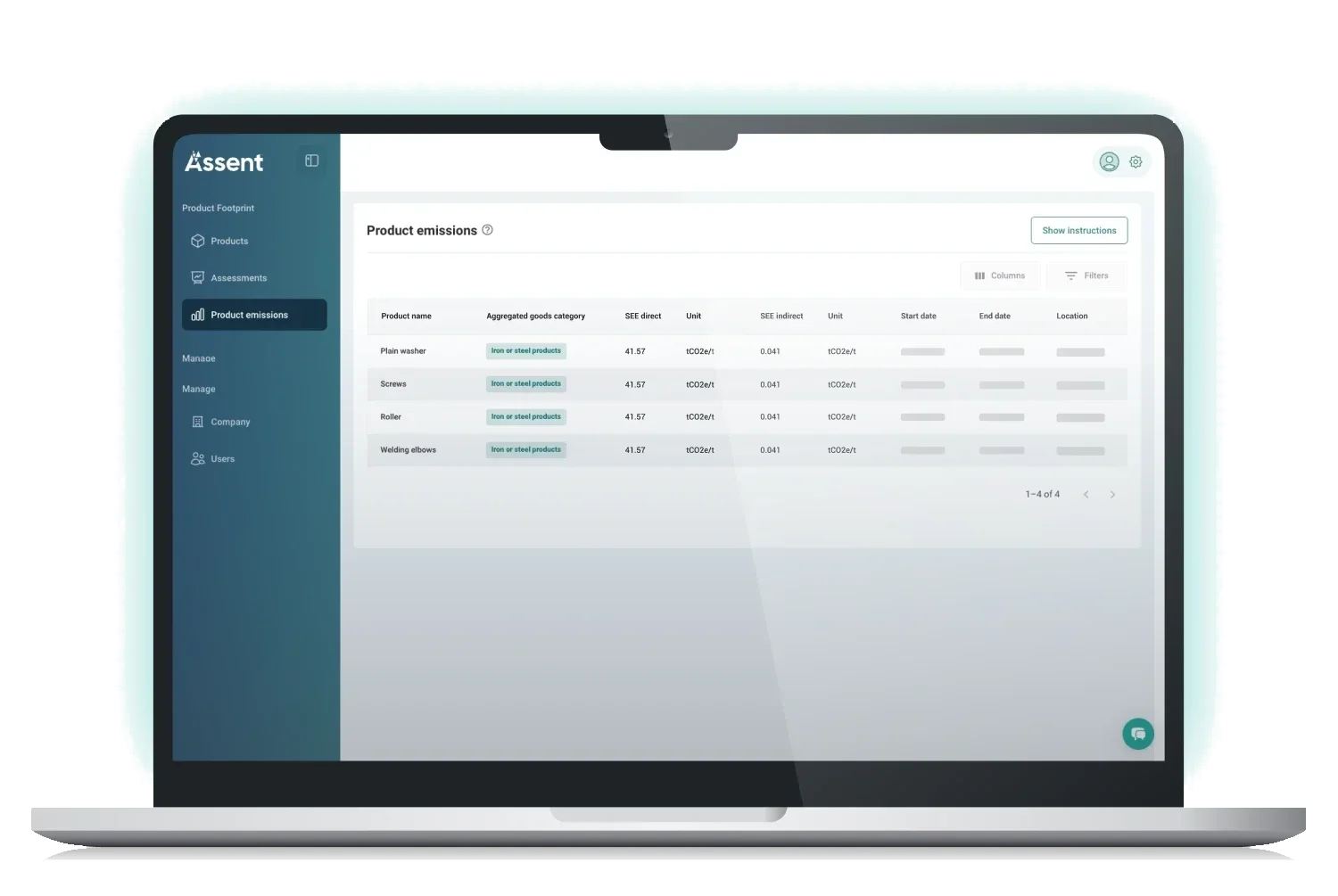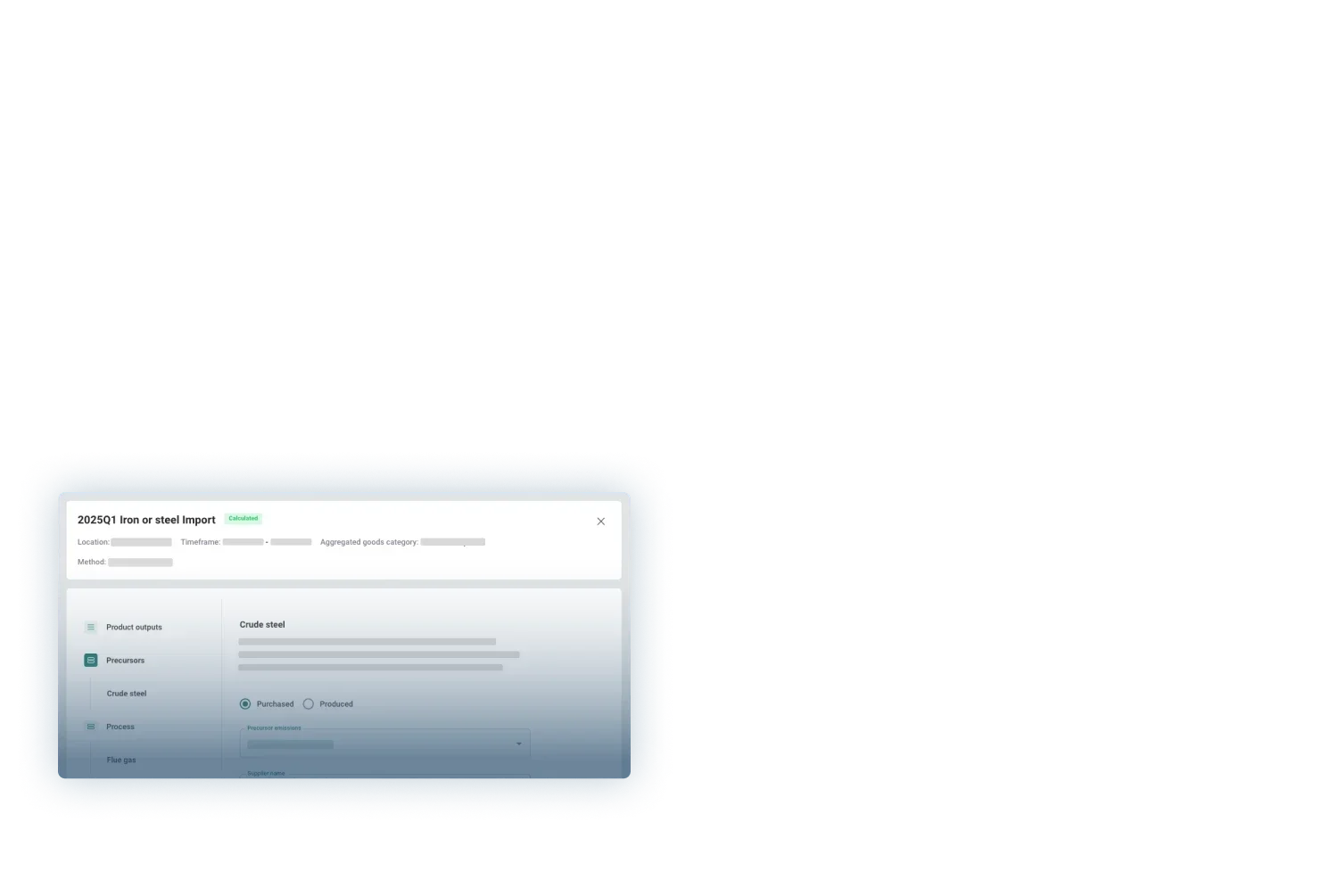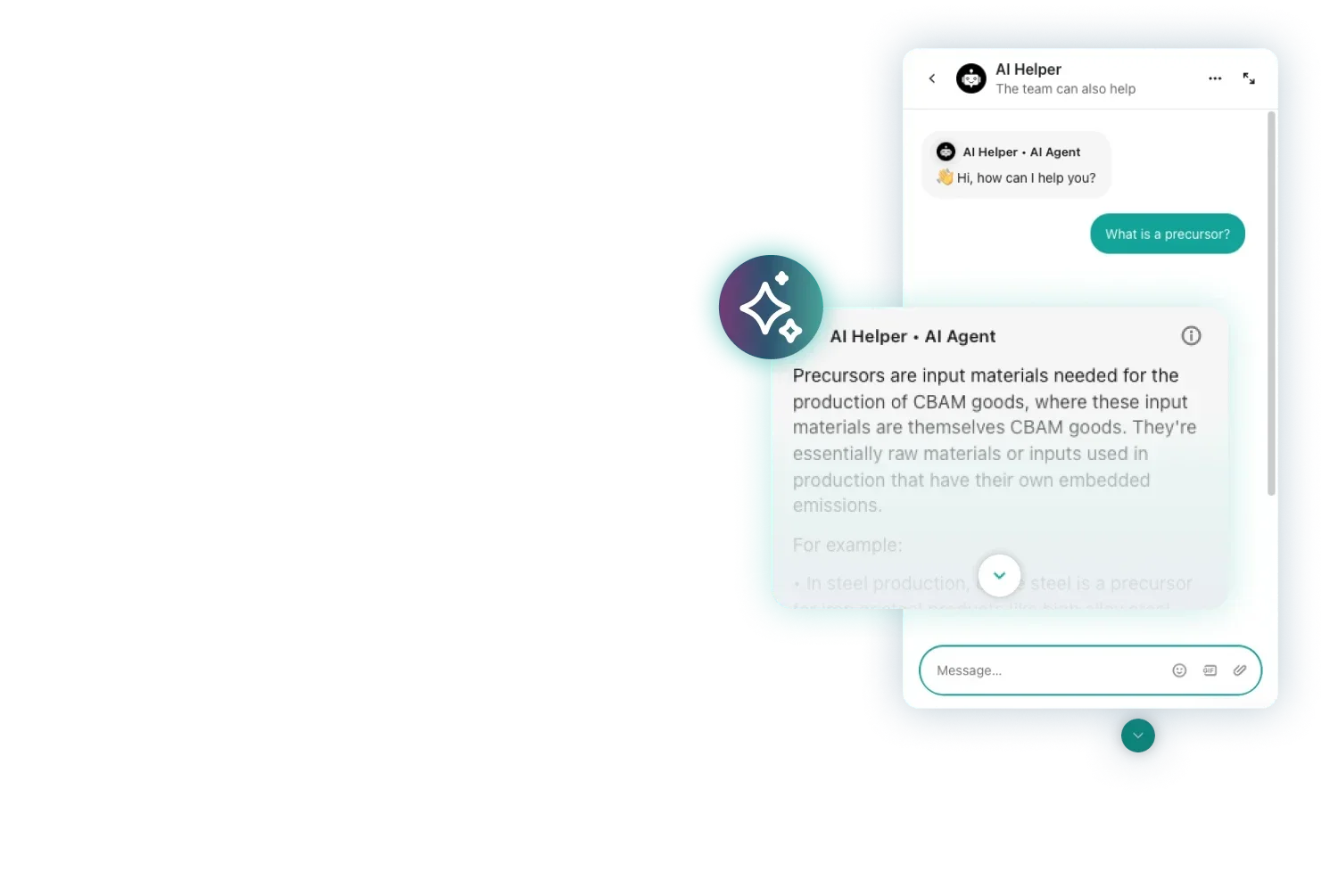Still Exploring?
Looks like you’ve been exploring our platform.
Want to see everything in one place?
Rising Regulatory Pressure
Data-Heavy Requirements
High Financial Stakes
Limited Resources
of company profits could be lost by 2030 if businesses fail to adapt to CBAM.
‘ McKinsey. (2024, June 28). New opportunities: Capturing value from CBAM regulation. https://www.mckinsey.com/ capabilities/operations/our-insights/operations-blog/new-opportunities-capturing-value-from-cbam-regulation

Download The CBAM Handbook for a walkthrough of your carbon reporting next steps.
Get Your CopyMay 17, 2023
CBAM enters into force
August 17, 2023
Implementing regulation for the transitional phase adopted
October 1, 2023 to December 31, 2025
Transitional phase begins
October 1, 2023
First transitional-phase reporting period starts
Importers must report within one month after each quarter-end:
January 31, 2024
First CBAM quarterly reports due
July 31, 2024
Importers can no longer rely on default emissions values; reports for complex goods must contain ≥ 80% primary data from installations
July 31 to December 31, 2024
Embedded emissions may be calculated using either the new EU method or, temporarily, an equivalent method
January 1, 2025
Only the EU method will be accepted in CBAM reports
February 26, 2025
Omnibus Simplification Package proposal published, aiming to reduce administrative burden for importers
Early 2025
CBAM Registry upgrades
May 2025
Assent launches a solution for CBAM compliance, with AI-tools and built-in carbon emissions calculator
January 1, 2026
Only registered Authorized CBAM Declarants may import CBAM goods
Need a hand with CBAM certificates?
Talk to an ExpertSeptember 30, 2027
Deadline to submit an independently verified CBAM declaration (covering CY 2026) to the Registry, including:
2030 (Outlook)
CBAM scope expected to expand to all goods covered under the EU Emissions Trading System (ETS)
Get ahead of
tomorrow’s
requirements
Actual emissions data has direct monetary value. Importers need embedded emissions reporting to cut certificate costs and avoid fines; suppliers need it to stay on customer short-lists. As CBAM tightens, the cost of inaction rises — from parts obsolescence to lost market access.
Assent removes the guesswork. Our AI-enabled platform couples expert guidance with automated, user-friendly workflows to gather primary emissions data, calculate carbon footprints, and create CBAM-ready reports — all in one place.
Hands-on expertise to decode CBAM rules
Direct supplier access through Assent’s network
Al-powered insights to simplify complex emissions data
Centralized emissions hub for direct and indirect data
Carbon survey built for quick supplier opt-in/out
CBAM-formatted outputs ready for registry upload
Audit-ready documentation for defensible reporting



